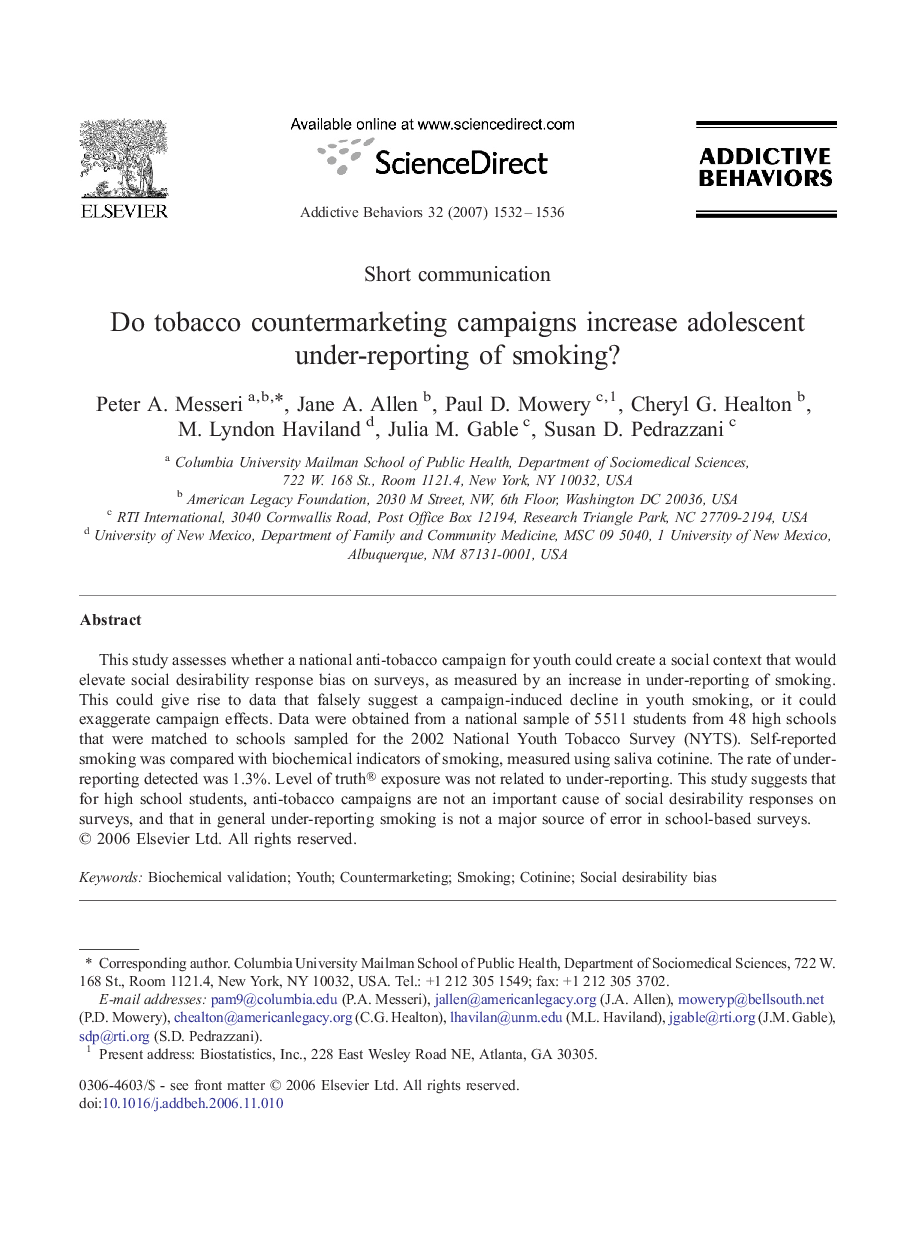| کد مقاله | کد نشریه | سال انتشار | مقاله انگلیسی | نسخه تمام متن |
|---|---|---|---|---|
| 899894 | 915406 | 2007 | 5 صفحه PDF | دانلود رایگان |

This study assesses whether a national anti-tobacco campaign for youth could create a social context that would elevate social desirability response bias on surveys, as measured by an increase in under-reporting of smoking. This could give rise to data that falsely suggest a campaign-induced decline in youth smoking, or it could exaggerate campaign effects. Data were obtained from a national sample of 5511 students from 48 high schools that were matched to schools sampled for the 2002 National Youth Tobacco Survey (NYTS). Self-reported smoking was compared with biochemical indicators of smoking, measured using saliva cotinine. The rate of under-reporting detected was 1.3%. Level of truth® exposure was not related to under-reporting. This study suggests that for high school students, anti-tobacco campaigns are not an important cause of social desirability responses on surveys, and that in general under-reporting smoking is not a major source of error in school-based surveys.
Journal: Addictive Behaviors - Volume 32, Issue 7, July 2007, Pages 1532–1536